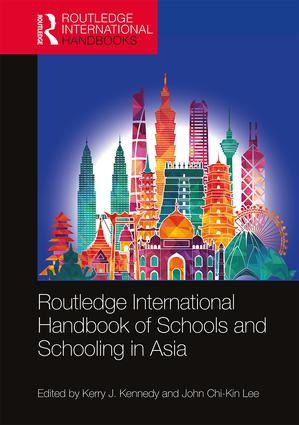 My latest piece was just published in the Routledge International Handbook of Schools and Schooling in Asia. My chapter, entitled “Private Tutoring in Southeast Asia: Knowledge Economies, Positional Goods, and the History of Clientelism,” compares tutoring in Cambodia and Singapore. Whereas tutoring is typically conducted by public school teachers in Cambodia, in Singapore tutoring is big business, organized outside of mainstream schooling. The goal of the piece was to move beyond describing tutoring (as has been done countless times before) to begin theorizing it, in this case from two extreme cases. I found that the concept of positional goods and clientelism were useful when thinking about tutoring. In other words, we have to see tutoring within the rise of the global knowledge economy that differentiates one’s value based on degree, while also recognizing the specific historical context in each case. In the Cambodian case, it is the social phenomenon of clientelism — making informal payments to patrons for some sort of protection — that is very much needed to explain common tutoring practices.
My latest piece was just published in the Routledge International Handbook of Schools and Schooling in Asia. My chapter, entitled “Private Tutoring in Southeast Asia: Knowledge Economies, Positional Goods, and the History of Clientelism,” compares tutoring in Cambodia and Singapore. Whereas tutoring is typically conducted by public school teachers in Cambodia, in Singapore tutoring is big business, organized outside of mainstream schooling. The goal of the piece was to move beyond describing tutoring (as has been done countless times before) to begin theorizing it, in this case from two extreme cases. I found that the concept of positional goods and clientelism were useful when thinking about tutoring. In other words, we have to see tutoring within the rise of the global knowledge economy that differentiates one’s value based on degree, while also recognizing the specific historical context in each case. In the Cambodian case, it is the social phenomenon of clientelism — making informal payments to patrons for some sort of protection — that is very much needed to explain common tutoring practices.
Will Brehm
Education & International Relations
